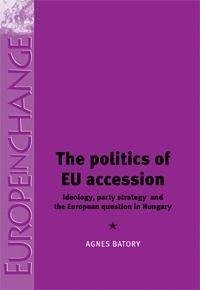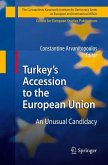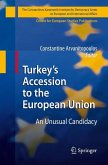Contributes to important contemporary debates on Europeanization and domestic change. Addresses gaps in three bodies of literature which are attracting increasing academic interest: the causes and consequences of Euroskepticism; Europeanization; and post-communist countries in the context of the 2004 EU enlargement.
How do parties adopt and change positions on the European question? How do they balance the demands placed upon them by ideology, voters and participation in coalition government? What are the sources of Euroscepticism, and how widespread is it among the parties and the public? This book addresses these questions by examining the politics of Hungary's accession to the European Union, from the early 1990s to 2004. The book provides a conceptually grounded yet accessible analysis of the way questions related to EU membership, and European integration in general, are channelled into political life. Starting with a comparative exploration of the impact of European integration on party politics in Western and Eastern Europe, the book goes on to review the Hungarian political parties' history, ideological profiles, electoral competition and coalition-building in government and opposition, as well as the dynamics of public opinion. It will be of interest to academics concerned with the contestation of European integration in EU member states, and specifically with party politics in Central and Eastern European.
Hinweis: Dieser Artikel kann nur an eine deutsche Lieferadresse ausgeliefert werden.
How do parties adopt and change positions on the European question? How do they balance the demands placed upon them by ideology, voters and participation in coalition government? What are the sources of Euroscepticism, and how widespread is it among the parties and the public? This book addresses these questions by examining the politics of Hungary's accession to the European Union, from the early 1990s to 2004. The book provides a conceptually grounded yet accessible analysis of the way questions related to EU membership, and European integration in general, are channelled into political life. Starting with a comparative exploration of the impact of European integration on party politics in Western and Eastern Europe, the book goes on to review the Hungarian political parties' history, ideological profiles, electoral competition and coalition-building in government and opposition, as well as the dynamics of public opinion. It will be of interest to academics concerned with the contestation of European integration in EU member states, and specifically with party politics in Central and Eastern European.
Hinweis: Dieser Artikel kann nur an eine deutsche Lieferadresse ausgeliefert werden.








